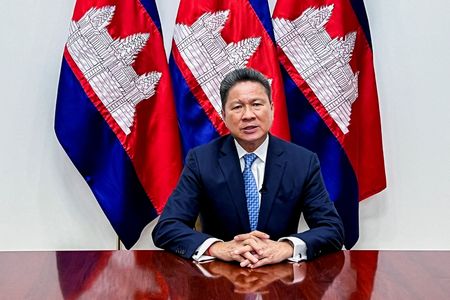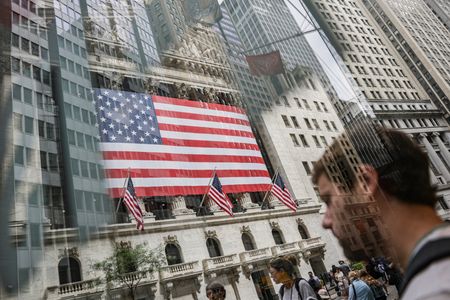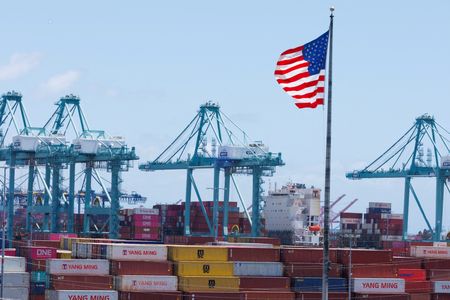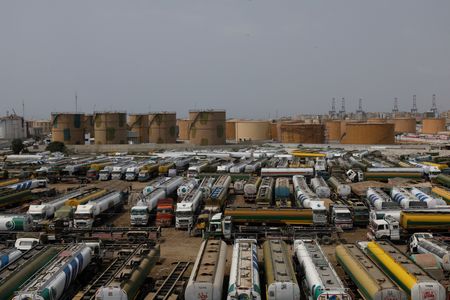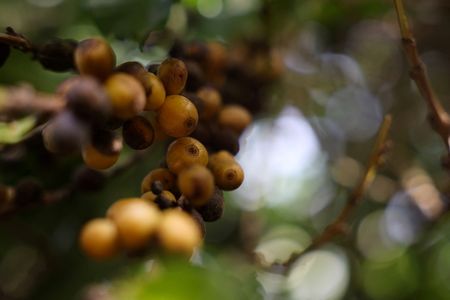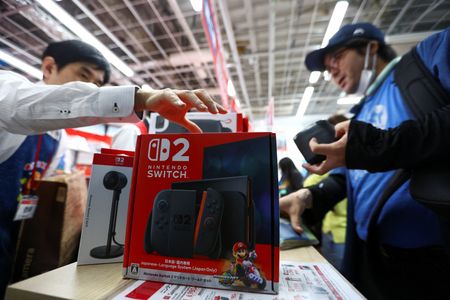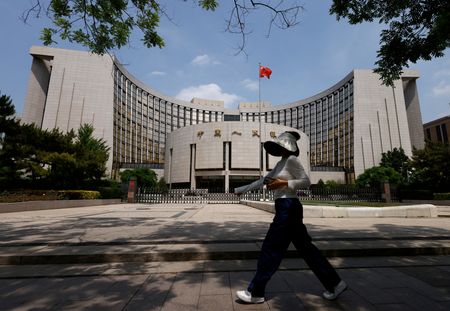By Martin Petty
(Reuters) -A tariff rate of 19% on Cambodia’s exports to the United States has helped it avert the collapse of its vital garment and footwear sector, allowing the country to remain competitive with its peers, its deputy prime minister told Reuters on Friday.
Sun Chanthol, Cambodia’s top trade negotiator, thanked U.S. President Donald Trump for his understanding in Cambodia’s negotiations to reduce a tariff rate that had initially been set at 49% then later 36% – among the world’s highest levies – and for his intervention in a deadly conflict between Thailand and Cambodia.
“First off the bat I have to thank President Trump for providing a rate that’s competitive vis-a-vis our neighbouring countries and express gratitude to President Trump for his noble intervention for a ceasefire and peace,” Chanthol said in a phone interview.
“If the U.S. maintained 49% or 36%, that industry would collapse in my opinion,” he said of the garment and footwear manufacturing sector, the biggest economic driver in the country of 17.6 million people.
“People would go to Indonesia, Vietnam … a 16% difference would have been huge. We can live with 5%, anything around that. We are very grateful, for protecting our industry and its employees.”
“We have close to 1 million workers, mainly women, each one of those workers supporting 4-5 members of their family. It would have been a huge impact if this would have been bad,” he added.
Cambodia has a big trade surplus with the United States, with its exports to the U.S. market accounting for 37.9% of its total shipments in 2024, valued at close to $10 billion, according to official data.
Much of that was textiles and shoes, a sector crucial to an economy projected by the International Monetary Fund to reach $49.8 billion this year, driven by manufacturing of goods for brands that include Adidas, H&M, Ralph Lauren and Lacoste.
The deputy premier said what had been agreed with Washington was a framework, with a deal to be finalised later.
Chanthol also said Cambodia had agreed as part of the deal to buy 10 Boeing 737 MAX 8 aircraft for its national carrier Air Cambodia, with the option to purchase another 10.
“We don’t have a lot of purchasing power compared to other countries,” he said. “Our approach was we put everything on table, negotiate in good faith, ensure both countries will benefit from this trade deal.”
(Reporting by Martin Petty; Editing by David Stanway)

